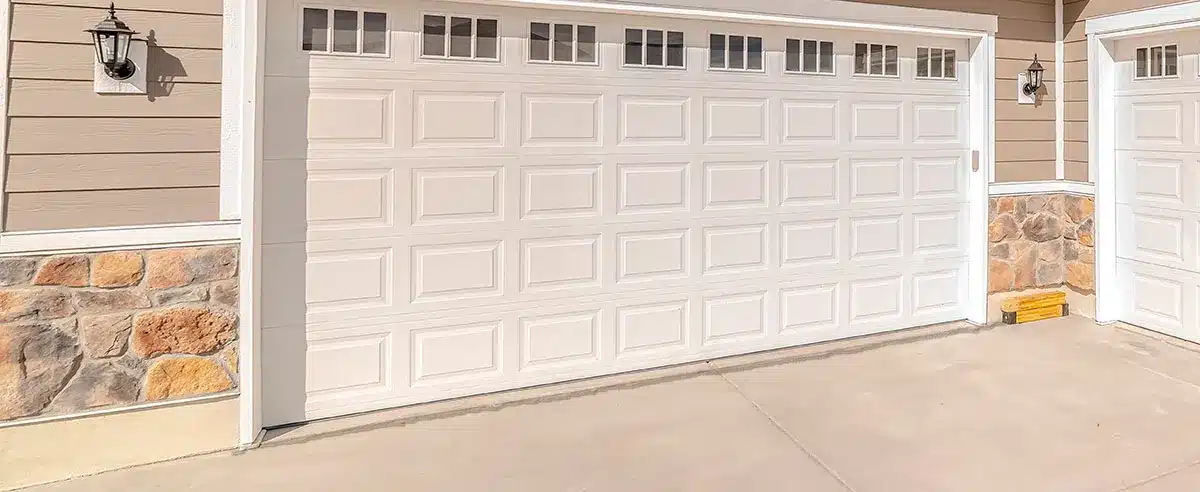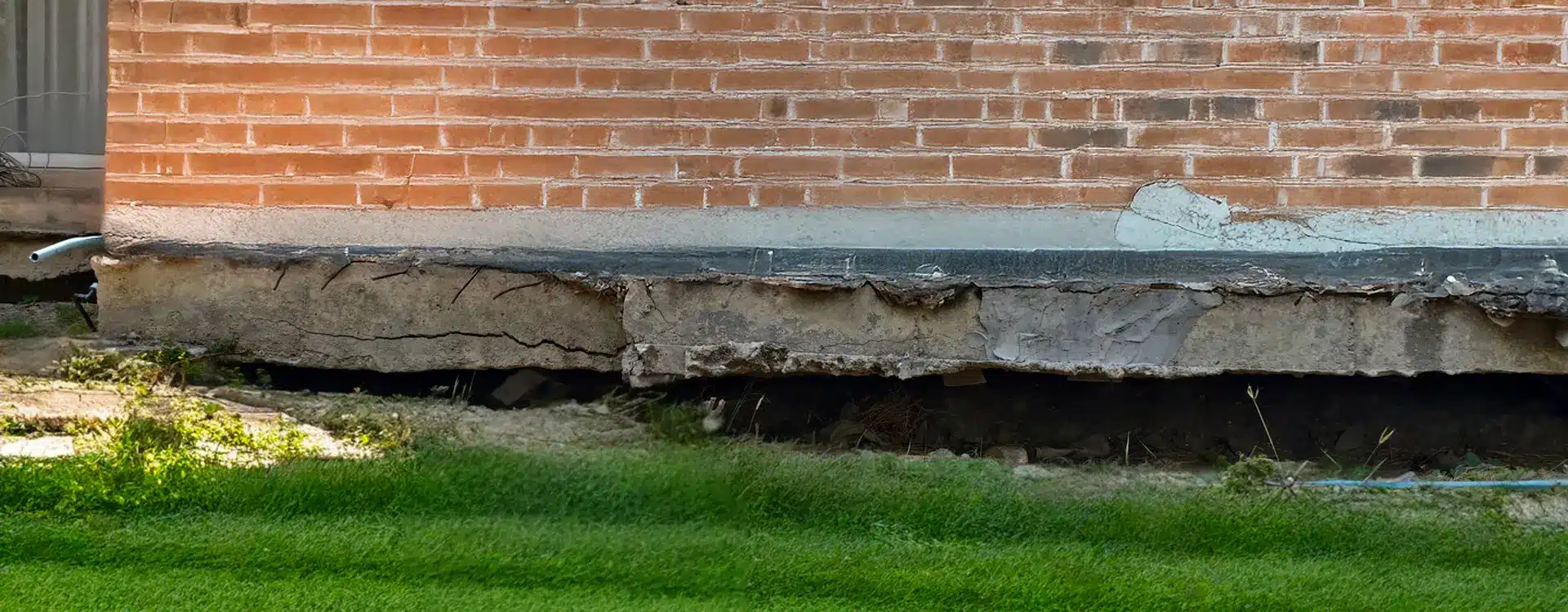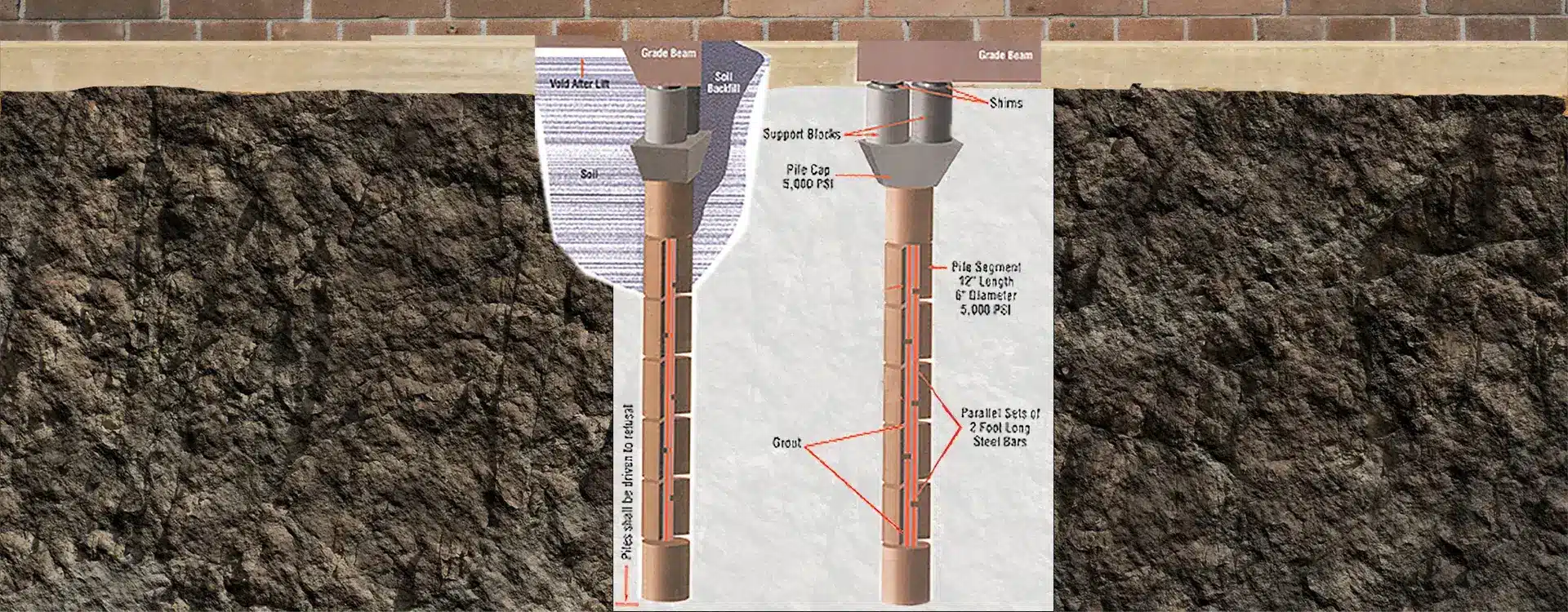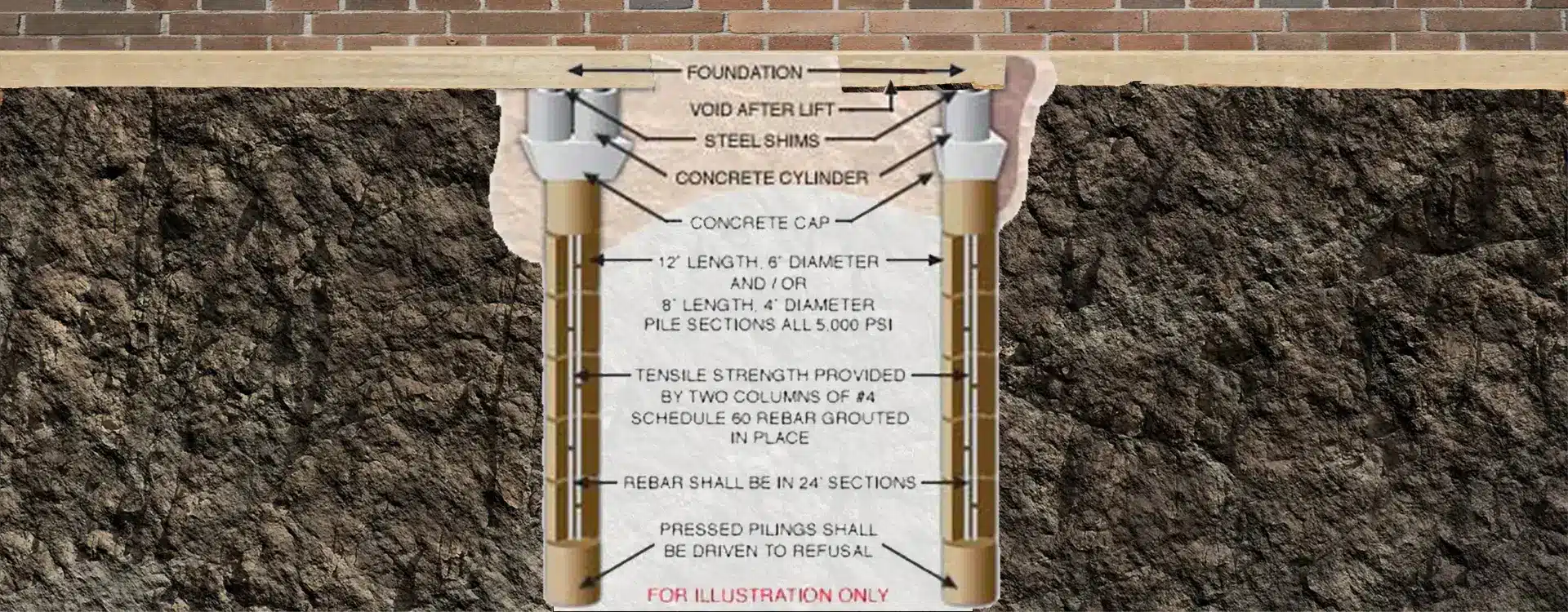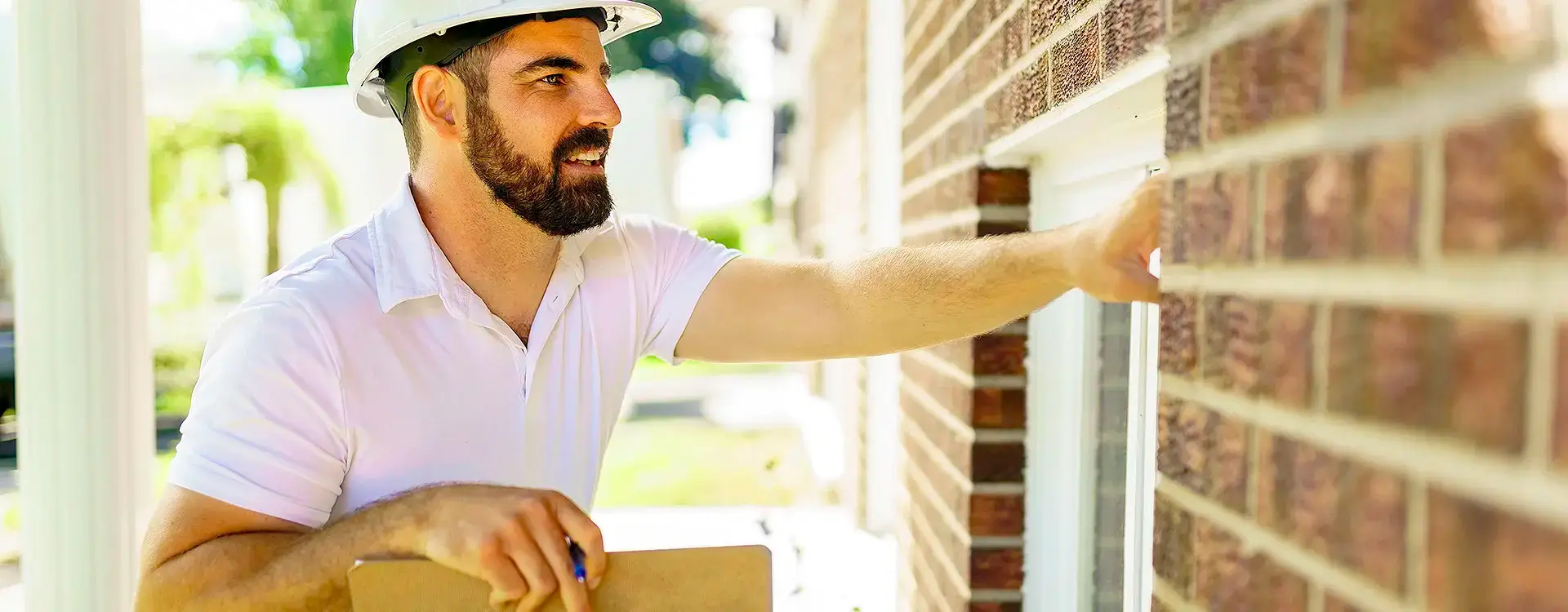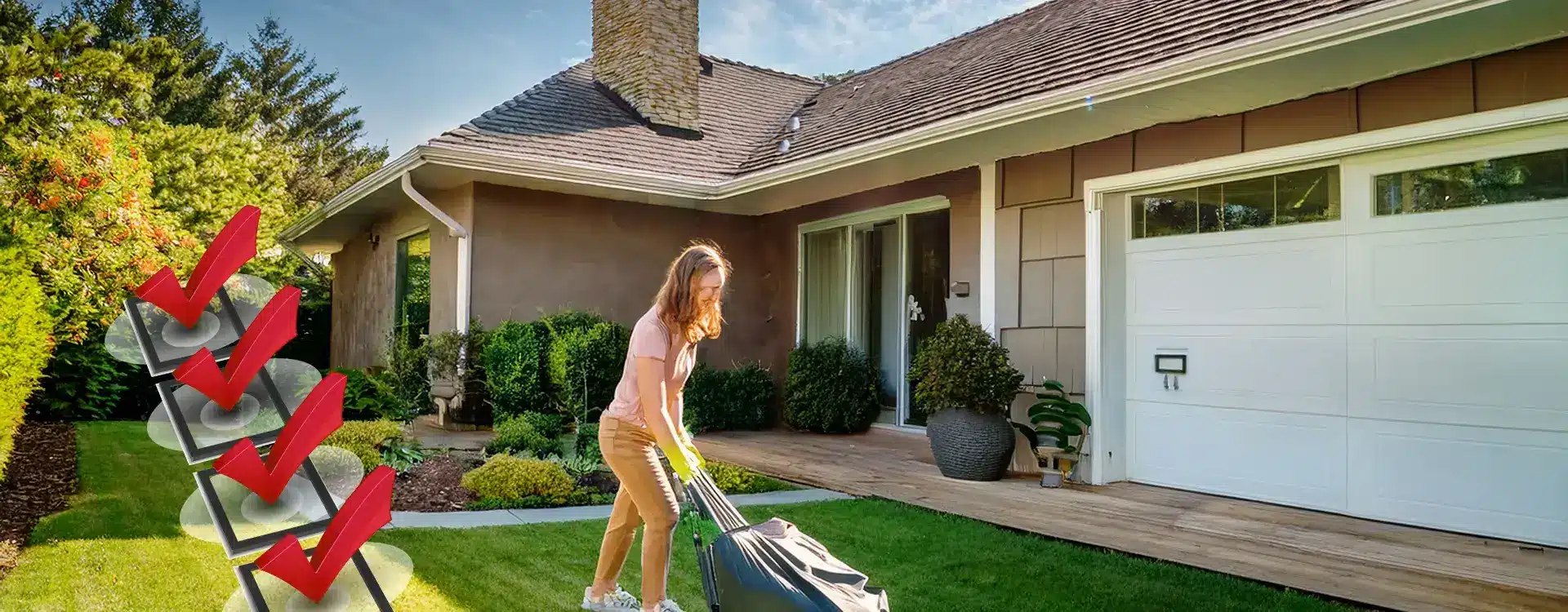What Causes Gaps
Several things play into why gaps happen between various concrete and asphalt around your home:
Foundation Problems: Building issues cause shifts. Sometimes that leads to gaps between parts of the building.
Settling: Over time, soil beneath structures can compact or erode, causing the above materials to settle unevenly.
Weather Conditions: Alternating wet and dry periods cause soil expansion and contraction, leading to movement in concrete and asphalt surfaces.
Do You Need to Seal Gaps?
Sealing gaps between structures is highly recommended to prevent:
- Water seeping in causes erosion and freeze-thaw damage.
- Weed and plant growth leads to the further widening of the gaps.
- Pest infestations, such as small rodents and insects, can use gaps as entry points.
- Additional damage happens as ongoing movement increases separation over time.
Sealing small and large gaps sooner rather than later. You prevent future expensive repairs.
Solutions for Filling Gaps Between Garage Floor and Driveway
Polyurethane Sealants: Self-leveling sealants are flexible. It makes them great for filling small to medium gaps. They adhere well to concrete and asphalt but stay flexible with seasonal changes.
Concrete Crack Fillers: Seal smaller gaps with pre-mixed concrete patching compounds. It helps prevent further widening.
Backer Rod & Sealant Combo: Fill gaps with a foam backer rod before sealing them. You get a deep enough fill with long-term effectiveness.
Expansion Joint Repair Strips: Rubber or foam expansion joint replacements fit into the gap to restore a smooth, sealed transition between the garage and driveway.
Gaps Between Garage/Foundation and Different Types of Driveways
Gaps between the garage or foundation and different types of driveways can vary in size and severity depending on the driveway material. Various kinds of driveways react differently to weather changes, weight loads, and settling.
Concrete Driveway
Because concrete is rigid, it cracks with too much pressure or shifting. Water seeps into the gaps causing damage. Help prevent damage by sealing gaps.
- Best Sealant: Consider using a polyurethane joint sealant or expansion joint filler.
- Additional Considerations: If the gap is large, consider using a backer rod before sealing.
Asphalt Driveway
Asphalt is more flexible than concrete. It takes more time for gaps between an asphalt driveway and the garage/foundation.
- Best Sealant: Rubberized asphalt filler or bitumen-based sealant
- Additional Considerations: Use cold patch asphalt to level larger gaps before sealing.
Paver Driveway
Pavers can shift due to settling or improper base installation, leading to gaps.
- Best Sealant: Polymeric sand or flexible joint compound
- Additional Considerations: Ensure that the pavers are properly compacted and reset if needed before sealing the gap.
In General: How to Fix Gaps Between Foundation and Driveway
Polyurethane Joint Sealant: Ideal for small to medium gaps, providing flexibility and waterproofing.
Backer Rod & Sealant: Necessary for wider gaps, ensuring an even fill and long-term durability.
Foam Expansion Joints: An expansion joint replacement is often the best solution for larger separations.
Foundation Inspection: If the gap is significantly large or growing, consulting a foundation repair specialist may be necessary.
Solutions for Filling Gaps Between Concrete Patio and House/Foundation
Self-Leveling Polyurethane Sealant: The flexible sealant is waterproof. Use for smaller gaps. Once dry, it is a waterproof barrier.
Backer Rod & Sealant: For a deep gap deep, insert a backer rod. Then, apply the sealant. It helps the sealant completely fill the gap. You get a longer-lasting waterproof seal.
Concrete Expansion Joint Strips: Prevent excessive movement and water penetration using a foam or rubber expansion joint strip on larger gaps.
Mortar or Concrete Patching Compound: In cases where a rigid seal is necessary, apply a mortar or concrete patch for a lasting fix.
Drainage Considerations: When the patio slopes toward the foundation, water accumulates against the foundation. You want to move that water away from the house. Install a drainage solution like a channel drain.
Product and Tool Comparison Table
| Product Name | Type | Best For | Pros | Cons | Cost (Approx.) | Where to Buy |
|---|---|---|---|---|---|---|
| Sika Self-Leveling Sealant | Polyurethane Sealant | Concrete gaps (driveways, patios) | Durable, flexible, waterproof | Can be messy to apply | $12 per 10 oz | Home Depot |
| Sikaflex 11FC Purform | Polyurethane Sealant | Vertical or horizontal joints | High flexibility, strong adhesion | Slightly expensive | $15 per 10 oz | Bunnings |
| Quikrete Polyurethane Sealant | Concrete Crack Filler | Concrete cracks and joints | Easy to use, durable | May require backer rod for deep gaps | $8 per 10 oz | Lowe’s |
| DAP Asphalt Filler | Asphalt Sealant | Asphalt driveway cracks | Flexible, weather-resistant | Not ideal for large gaps | $6 per 10 oz | Amazon |
| Backer Rod (Various Brands) | Foam Rod | Deep gaps before sealing | Ensures proper sealant depth, flexible | Needs correct sizing for gaps | $4 per 20 ft | Amazon |
| Concrete Expansion Joint | Foam/Rubber Strip | Large expansion gaps | Provides cushioning, prevents cracking | Requires proper fitting | $10 per strip | Home Depot |
Fill Gaps Between Driveways, Garage & Foundation
Take care of your property. Understand why a gap between the garage and driveway happens. Know how to fix, fill, and seal gaps. By doing this, you help prevent water damage, pest infestations, and future damage. Use our tips and keep your property healthy and looking good.
Contacting Arch Foundation Repair
Arch Foundation Repair offers Texas homeowners foundation inspections and repair services. Schedule a foundation inspection.
Foundation Crack Series
- How to Repair Cracks Around Window Frames – Quick Guide
- How to Fix Concrete Floor Cracks in Slab? Ways to Great Results!
- How to: Filling Cracks Around Door Frames: Expert Ways to Make it Better
- How to Repair Wall Cracks, When to Worry, & When to Get Help
- How to Fix Ceiling Cracks DIY Tips – Are Cracks in Ceilings Normal?
- Signs of Foundation Problems: Why Does Grout Crack / Why Do Tiles Crack?
- Helpful Ways on How To Seal, Fill & Fix Cracks in Garage Floor
- Why Brick Walls Crack – When to Worry, Get General or Foundation Repairs
- How to Amend Clay Soil: Fill the Gap Between Soil and Foundations
- How to Fill a Gap Between Driveway and Garage & Foundation – Make Helpful Repairs
- Concrete Foundation Problems – What To Do If You Find Them

